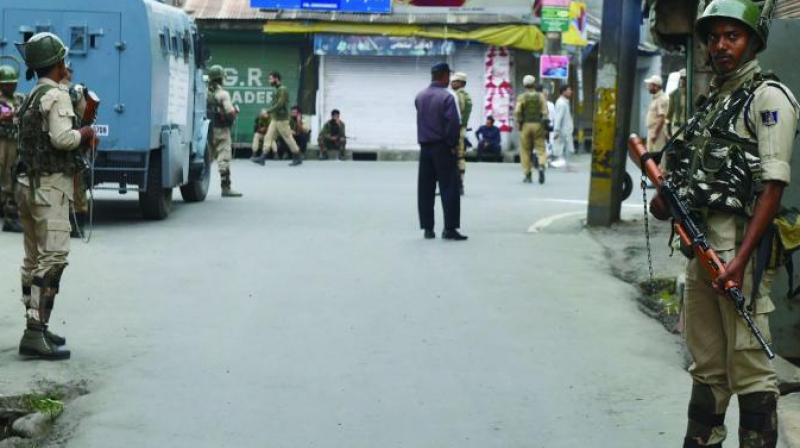Only ones happy with 370 move are JeI, separatists
Mr. Khan’s speech has appealed even to those who did not hide their pro-India sentiment in a conflict zone.

Srinagar/Baramulla/Shopian: Perhaps the only set of people in the Kashmir Valley pleased with the Narendra Modi government’s revocation of autonomy are the adherents of the Jamaat-e-Islami, an influential religio-political outfit which believes in merging with Pakistan, which is now ex-pected to command greater attention than before.
Otherwise the reaction in the valley can be summed up by a disgusted journalist in the north Kashmir town of Baramulla: “We are back at 1947.” Identities have been kept secret to avoid dire consequences and now they are asking is whether the choice made by them in 1947 needs to be re-visited. “It has been an illusion,” they say.
With Sheikh Abdullah marshalling popular opinion, in 1947 the Kashmiris put their faith in secular India rather than Islamic Pakistan, although the latter continued to attract the allegiance of a small section since then. With the rubbishing of Article 370, this section has now come alive.
The speech of Pakistan Prime Minister Imran Khan at the UN last month elicits nothing but praise. A young woman lawyer said, “The Pakistan PM spoke about the crisis that hit us after August 5 - the jailing of thousands, the communications blackout. He is the only one who spoke about us. Modi, on the other hand, spoke about shauchalya (toilets) at the UN! He could have talked about peace but didn’t.”
A north Kashmir villager who gets by as an electrician said: “Imran Khan has his own interests. We understand that. The people of Kashmir have never been with Pakistan. The show of Pakistan flags in protest rallies, unless the Jamaatis are involved, is only to cock a snook at New Delhi. But now we realise that India is not a friend. The trust of 70 years is gone. What was the need for all this? We have been made fools. God knows what the future holds.”
Mr. Khan’s speech has appealed even to those who did not hide their pro-India sentiment in a conflict zone. This lot seems to have swung to the side of azadi, a word with wide connotations, the most common being freedom from military searches and pervasive military presence that hits day-to-day life and wounds the dignity of people.
Crudely etched in Urdu on the side of a wooden table in a lawyer’s small office in Shopian in south Kashmir, the valley’s most disturbed district, where a killing took place hours after I departed, is the lament Ghulam Kashmir (Kashmir enslaved), encapsulating feelings in the wake of August 5.
(To be concluded)

